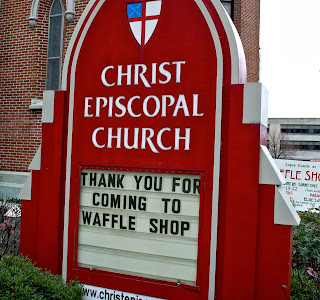If the truth be told, I’m itching for a good snowfall.
Pause.
My most recent thought is that the above line should really be the content of a Facebook comment, not the major plot line of a blog entry. I mean, what can a writer say about a snowfall? ;-)
Thinking about snow positively seems against the Midwesterner’s way of thinking. Snow = wet, slick road = slow traffic at the least, major damage to your vehicle and possible loss of life at its worst. True.
So drive slowly. Or don’t drive at all.
For me, such is part of the true joy of big Ohio winter weather events: Everybody slows down. Have to. Wouldn’t be prudent to drive out in 6 inches on the ground and snow still coming. Toss another log on the fire.
As much as I loved teaching, I was always excited for a snow day. Like few other professions, I got a day off when it was deemed too chancy to send out a fleet of school buses to transport children for miles for a day of education.
Other kinds of education would be on tap for a snow day, whether going out playing in the snow with my girls or giving them a day to read, watch Mr. Rogers and Sesame Street, or work on crafts. We sat by a fire in the fireplace with mugs of hot chocolate most snow day mornings, too. At least I think we did. Sure is a rich memory. Sometimes I wonder what is true memory and what has been enhanced by dreams.
Winter snow days have that kind of power of me, I’m afraid. I have a handful of great weather memories connected to snowfall. One of my favorites is the first night I walked out into a heavy snowfall — and heard nothing. I mean nothing. Dead silence. Maybe a hint of a car moving across the intersection beyond, but so muffled. So quiet. The snow sucked up every sound wave as it moved in, covering the neighborhood. Magical, indeed.
I want to revisit that wonderland whenever I can. It’s not a province you can visit. It’s not something you can even come to expect. Maybe this winter will be mild and every day just brown grass, bare trees, and grey skies as far as the eye can see.
But then there might be a weather advisory a couple days prior. Yes, conditions look promising for a heavy snowfall if this front moves this far by then. But maybe not. So the snow-expectant have learned to make snide comments about weather men and women who ‘always get it wrong’ and go about their regular business, but watching more carefully for weather updates. Hope winters eternal.
And then, sometimes, there is a blessed event. A beautiful snowfall that starts just about dawn and continues throughout the day. You tune in to the Weather Channel to confirm what you see out your window. Yup. Lookin’ good. Still snowing strong out past Indianapolis. And the world changes.
The bottom crawl line on the television teems with schools, churches, and some companies who have reconsidered the wisdom of having colleagues come out in weather to gather for whatever purpose.
Instead, the family unit is united in a special event that all will participate in; that all can see. If all goes well, this could me a memory of a lifetime. Maybe it will be the foot of snow predicted. Maybe the trees will glimmer with ice before some fall from the freight. In any case, it will be special.
So, yes, I’m ready for a Calgary Clipper or a Nor’wester or whatever named storm blows up somewhere headed for the Miami Valley bringing a winter smorgasbord of precipitation. I wish everybody the best. I want everybody to have a warm place to stay, like me. I hope everybody is safe on the roads. I hope everybody has wood and a wood-burning fireplace.
I hope everybody has a chance to get out into a good winter snowfall and feel one of the Earth’s softest and most beautiful events. And then just stand there in a zen-moment, sensing snow accumulating on you, too. On your nose. On your glasses. You stick out your tongue and wait for a few flakes to find you, melting coldly, immediately returning sky-born moisture to your being.
Pretty damn cool, if you ask me.
Today’s elder idea: The snow doesn’t give a soft white damn whom it touches.
e. e. cummings
image: Noah doing his snow removal piece at Grandma & Grandpa’s. (December 2004)















